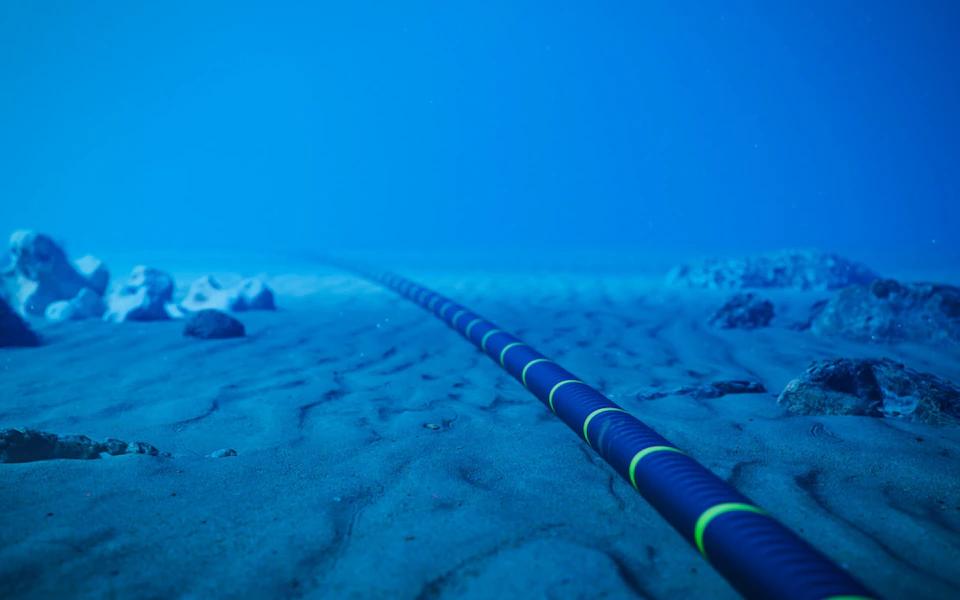Military chiefs at Nato have been warned of global internet blackouts following a string of suspected Russian attacks on subsea cables.
Telecom companies including Vodafone, O2 owner Telefonica and Orange have written to UK, EU and Nato officials warning that a rise in sabotage incidents was putting critical services at risk.
In an open letter, they wrote: “The repercussions of damage to subsea cables extend far beyond Europe, potentially affecting global internet and power infrastructure, international communications, financial transactions and critical services worldwide.”
It comes after a spike in incidents relating to fibre optic cables on seabeds that carry huge volumes of data, voice and internet traffic between countries.
More than 500 cables carry around 95pc of all international data, while their remote location makes them difficult and costly to monitor.
Meanwhile, 11 subsea cables have been damaged in the Baltic Sea since October 2023 and similar outages have been reported in the North Sea.
The incidents have fuelled fears of sabotage by hostile actors, with more than 50 Russian ships observed in areas of high cable density in the Baltic Sea. The UK is monitoring the Russian spy ship Yantar amid concerns that it is mapping critical underwater infrastructure.
Concerns have also been raised about Chinese sabotage following a number of incidents around Taiwan.
John Healey, the Defence Secretary, in January described the outages as “another example of growing Russian aggression”.
He said: “I also want President Putin to hear this message: we see you, we know what you are doing, and we will not shy away from robust action to protect this country.”
Members of the parliament (MPs) on the joint committee on the national security strategy have launched an inquiry into Britain’s ability to defend its subsea infrastructure from attacks.
Matt Western, chairman of the committee, said: “As the geopolitical environment worsens, foreign states are seeking asymmetric ways to hold us at risk. Our internet cable network looks like an increasingly vulnerable soft underbelly.”
In the letter, the telecoms groups said network security was an “absolute priority”, arguing that infrastructure diversity meant traffic could be rerouted in the event of an incident and that countries had the capacity to intervene quickly to repair cables.
But they warned that the rise of malign attacks by hostile actors meant governments needed to step up their security measures.
The companies called for the entire subsea cable network to be classed as critical infrastructure to ensure they are granted the appropriate level of protection and security investment and called for a simplification of permitting processes and governance structures.
They also urged the EU, UK and Nato to collaborate on intelligence sharing, as well as shared monitoring and surveillance initiatives.
They wrote: “Harmonised approaches must be developed for the subsea cables ecosystem, aiming to align security objectives with operational feasibility as well as a viable business model and based on proportionate and risk-based best practices, developed in close consultation with industry.”
Vodafone is one of the UK’s largest owners of subsea cables after acquiring hundreds of thousands of kilometres of cables from Cable & Wireless in a £1bn deal in 2012.
The technology is also increasingly owned by US tech giants including Google, Facebook and Microsoft

